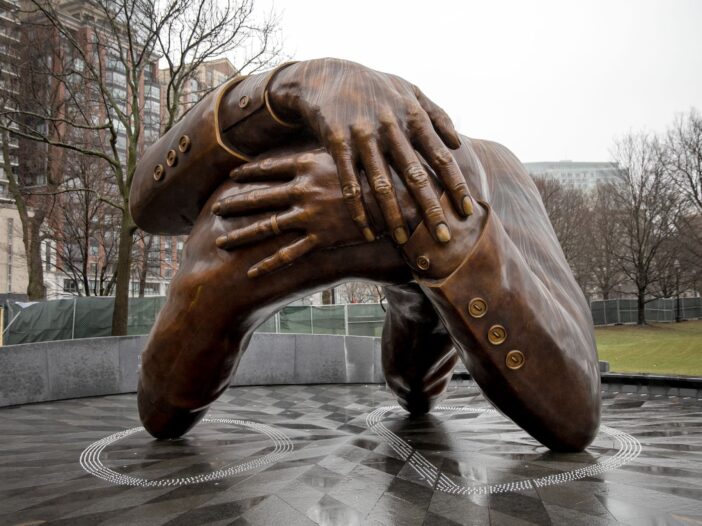
Juneteenth marks the nation’s second Independence Day. On June 19, 1865, Union forces finally arrived in Galveston Bay, Texas, some two years after the Emancipation Proclamation, announcing that more than 250,000 enslaved people in the state were now free by executive decree.
No doubt this news cheered many in Massachusetts, given the citizenry’s then-long history of opposing slavery. William Lloyd Garrison and other prominent abolitionists hailed from Massachusetts, and the commonwealth’s highest court essentially had abolished chattel slavery in 1783, with many households freeing themselves of enslaved workers before and during the Revolutionary War.
Yet, despite the soaring rhetoric of freedom from abolitionist leaders and the refusal of most Bay Staters to keep slaves, the lives of Black people in Civil War–era Boston were anything but easy or uncomplicated.
In her riveting new book No Right To An Honest Living: The Struggle of Boston’s Black Workers in The Civil War Era, Jacqueline Jones — a Concord resident and winner of the 2024 Pulitzer Prize for History — meticulously chronicles the lives of Black Bostonians, including those who would become ministers, doctors, lawyers, house servants, or most often, day-to-day entrepreneurs out of sheer necessity.
Jones focuses her engaging narrative on a group of 66 newly freed Black men, women and children from Virginia who arrive in Boston in 1847 with hopes, dreams, and justifiable trepidation. What happens to them next, without private or government aid, is revealing, heartbreaking and in many cases, infuriating. Local abolitionists seemed much more interested in giving anti-slavery speeches in the South than improving conditions for formerly enslaved people in their own backyards.
In the 1850s and 60s, Boston was a lively melting pot of native-born residents, Brahmins, immigrants — mostly Irish and Canadian — and formerly enslaved people, who arrived in search of opportunity. The city was bustling with new building construction, the dredging and filling of swamps to enlarge the municipal footprint, and the laying of pipes, bridges and sewer lines. Yet Black residents were excluded, both informally or by law, from most of these jobs and were instead left to fend for themselves. How those residents ultimately made a living, raised their families and developed a thriving community is the stuff of inspiration, making Jones’ book a must-read for policymakers, CEOs and community leaders alike.
Of course, much has changed for the better in Boston over the last 150 years, but the essential goal of ensuring equal access and opportunity remains an ongoing challenge. In my work with returning-citizen entrepreneurs, for example, I see echoes of these formal and informal restrictions in the many housing, occupational, and licensing prohibitions they face when leaving prison. Entrepreneurialism often is the most viable alternative for someone excluded from traditional employment and productive trades. Public safety concerns alone can’t justify the myriad historical restrictions that have been on the books in Massachusetts for decades. Indeed, Juneteenth might be the best occasion for readers to peruse the National Inventory of Collateral Consequences of Conviction to get a sense of this history.
Black Bostonian John S. Rock is an impressive, outsized presence in Jones’ book. Rock worked as a physician, news correspondent and the first Black attorney admitted to practice before the U.S. Supreme Court. He was a prolific, eloquent public speaker. The idea that “colored men have no right to earn an honest living,” Rock stated, “must be starved out.”
At every opportunity, he called on his fellow residents to join the enduring struggle for equal citizenship and to match heartfelt rhetoric with concrete actions. “Words are easy, like the wind,” he said.
Rock was thoughtful and prescient. As we celebrate Juneteenth this year, his clarion call still rings true today.
Read in the Boston Business Journal
Larry Gennari is a business lawyer and chief curator of Authors & Innovators, an annual business book and ideas festival. Watch recent interviews with authors here. Gennari also teaches Project Entrepreneur, a business fundamentals bootcamp for returning citizens, at BC Law School.




